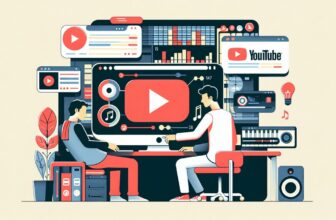What are the Benefits of Music Therapy?

Music Therapy is a modern healing discipline that has gained a lot of popularity in the last few decades.
It is quite a broad topic because, despite its recent origins (around the 1950s), it involves many different branches, methods, and approaches.
Music Therapy can have a wide variety of aims, according to a patient’s need. It can work on both a psychological and a physical level, on both cognitive and emotional skills, or it can help in the recovery of specific abilities affected by injuries or diseases.
To understand how Music Therapy can benefit anyone, we first need to have a broader look at the effects of music on our brains and bodies.
Note: This article should not be construed as medical advice. While we have done our best to provide you with accurate information, nothing can replace the advice of a trained professional. Before starting a therapeutic path, discuss your symptoms or needs with your therapist. He or she will come up with a personalized plan, entirely focused on your well-being.
Contents
A dopamine boost
Dopamine is a chemical naturally produced by our brain. It is often referred to as the “pleasure chemical” because of its blissful effects on our mind. Dopamine causes us to feel calmer, happier, more motivated.
Neurological researches confirm that music can stimulate the production of dopamine, by triggering specific spots in our brains. In other words, music literally makes us happier.
But this is just one of the proven effects of music on the human body and mind. Music can also affect our heartbeat, our perception of the world around us, and even the quality of our networks of neurons.
For example, a soothing song can be used to reduce the heartbeat of a panicking patient; a cheerful song can improve the symptoms of depression; a restful song can help us concentrate.
Music can also relax the tension in our muscles and work as a precious aid to activities such as yoga or meditation, improving their effects.
Making music
While some therapy approaches are focused on the activity of listening to music, some others concentrate on making music.
Singalongs, improvisation, drumming, songwriting, or even dancing are all activities often employed by music therapists.
The choice of the activity (or combination of activities) depends on the needs of the patient.
In group therapies or with patients who struggle with communication and social skills, music therapists may adopt activities that encourage self-expression and enhance self-esteem.
Some schools employ Music Therapy to improve students environment and behavior. The same is even true for some prisons!
By promoting self-expression through activities such as songwriting, and encouraging interpersonal dialogues through collective activities such as dancing or drum circles, Music Therapy can help to build a safe, harmonious environment, or assist those with difficulties in expressing themselves.
Cognitive skills
Music Therapy can be particularly helpful for patients diagnosed with Attention Deficit Hyperactivity Disorder (ADHD).
The relaxing effect of music will calm the patients down and develop their ability to focus. Moreover, the active production of music, as in songwriting activities or musical games, encourages them to be “in the zone”. This focused work constitutes an excellent exercise to contrast the attention deficit.
The soothing power of music, especially with a calmer, classical tune, can reduce the symptoms of anxiety and alleviate stress too.
In severe cases of anxiety and depression, therapists can employ the vibroacoustic technique, a powerful calming activity. In this method of therapy, the patient lies down on a mattress or bed with built-in speakers, to feel not only the sound but also the vibrations produced by the music.
Music seems to be an effective tool also for patients diagnosed with dementia or Alzheimer’s disease. In these cases, music can help in many different ways.
First of all, it provides a self-expression medium for patients unable to articulate clearly. Secondly, music can awaken the areas of the brain not affected by the disease.
Through music reminiscence, in particular, some patients may shortly restore memories. Lastly, the physical and psychological responses provoked by music can help reconnect patients to their family or stimulate movement in patients with severe motion impediments.
Restoring fine motor control
Music Therapy can have an incredible effect on the symptoms of Parkinson’s disease or on patients who suffered strokes, aneurysms, or any kind of injury affecting their ability to operate fine movements.
In particular, it can help to restore speech abilities through humming and singing. It can also help to restore fine movements, such as the use of hands and fingers, through the playing of an easy instrument or some simple dancing.
Some therapists may employ vibrotactile stimulation to recover the sensitivity of certain parts of the body affected by the trauma or disease. Furthermore, self-expressing activities can help tame the symptom of depression often associated with severe injuries and traumas.
Psychological disorders
Patients affected by severe mental illnesses often have expression and communication issues. They are unable to make relationships work because of these difficulties.
In these patients, Music Therapy can enhance self-expression and, through group activities, it can also improve their social skills.
By allowing patients to build better interpersonal relationships, some symptoms of their diseases lose strength and their well-being improves.
Music Therapy can also contrast symptoms such as lethargy and apathy. In patients affected by schizophrenia, it can help improve the awareness of oneself, the sense of identity, the awareness of others, and it can encourage communication.
A few common approaches and techniques
One of the earliest, and most known, Music Therapy methods is the one developed by Paul Nordoff and Clive Robbins throughout the 1950s and 1960s. Their approach is mostly directed at children with learning disorders and it aims at developing their self-expression and social skills through group music-making activities.
Common techniques in this and other methods involve musical games (for both adults and children), the use of percussive instruments, singalongs, and songwriting activities.
In conclusion, Music Therapy can benefit a wide range of patients. It can also help anyone feeling stressed or anxious.
Before starting a therapeutic path, discuss your symptoms or needs with your therapist. He or she will come up with a personalized plan, entirely focused on your well-being.





